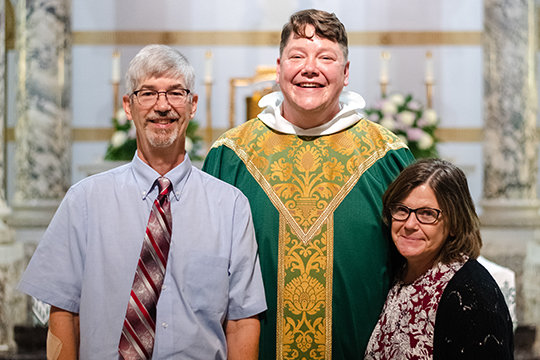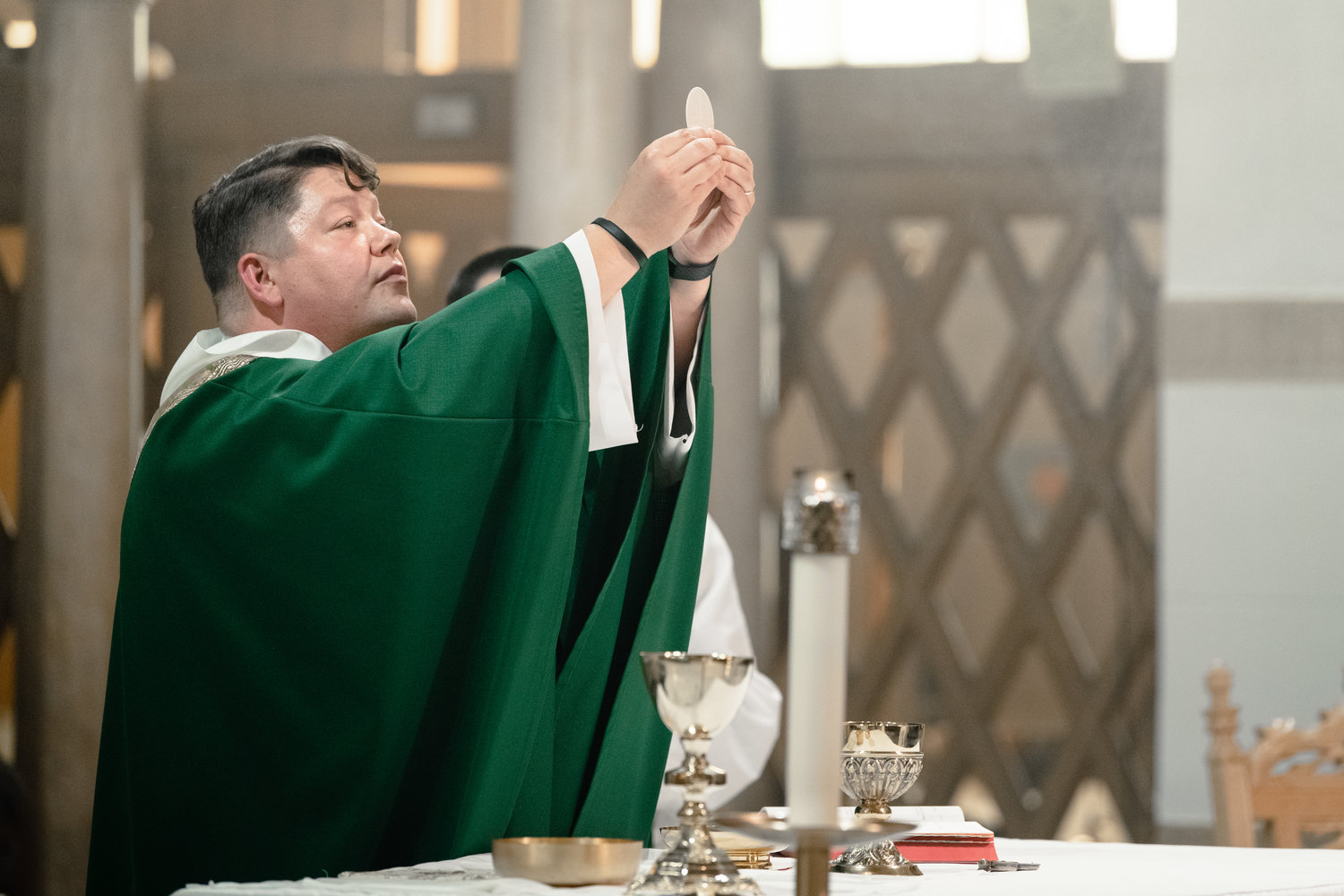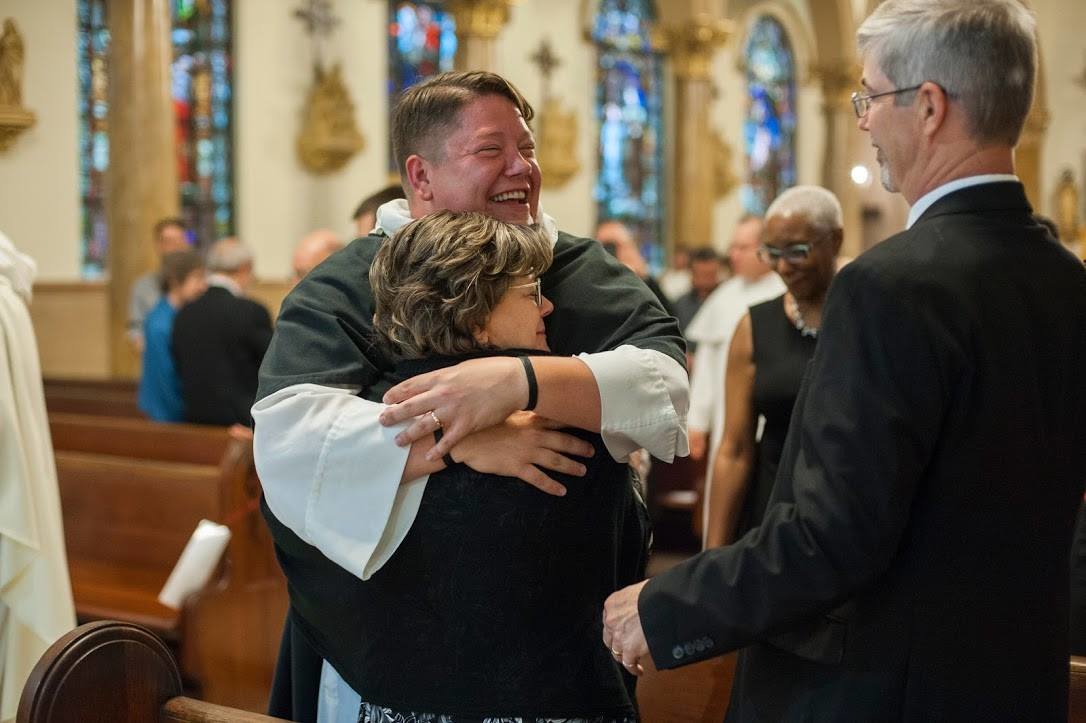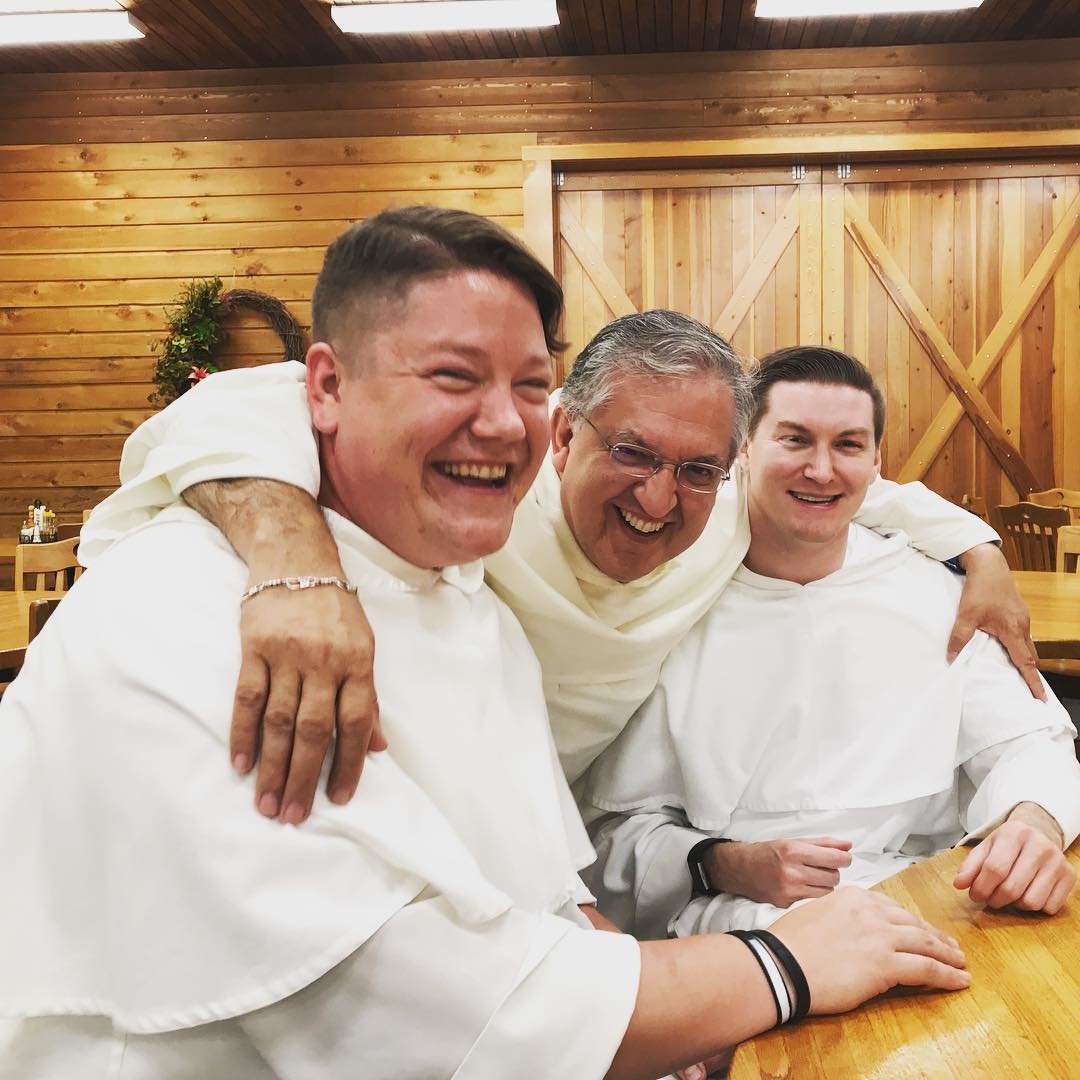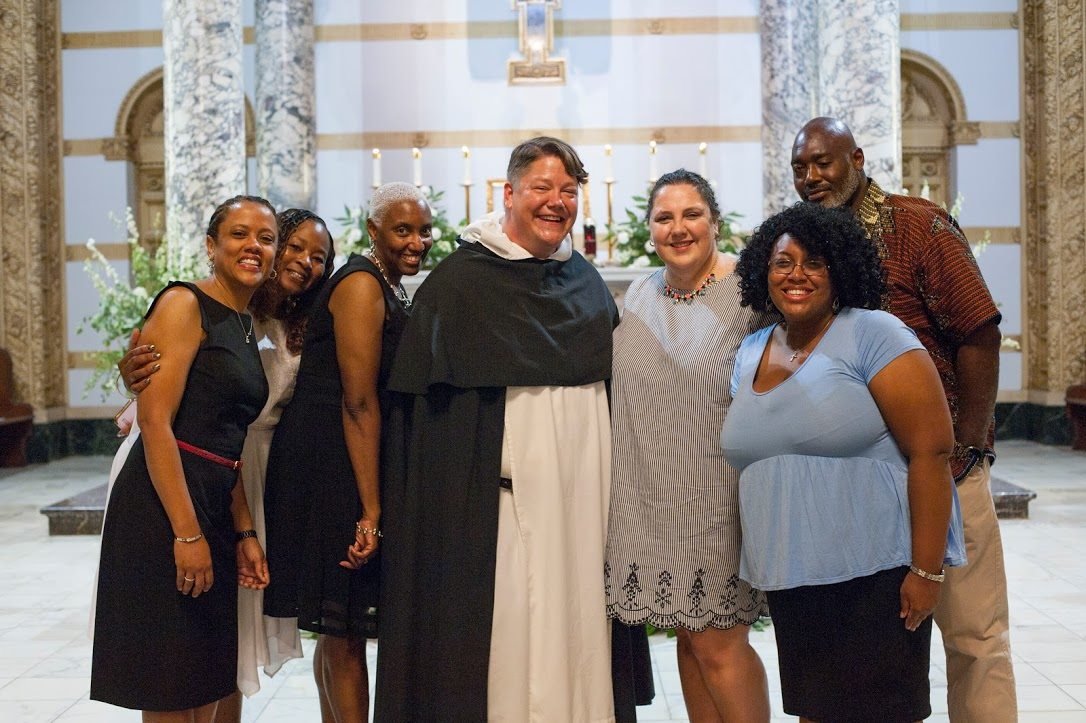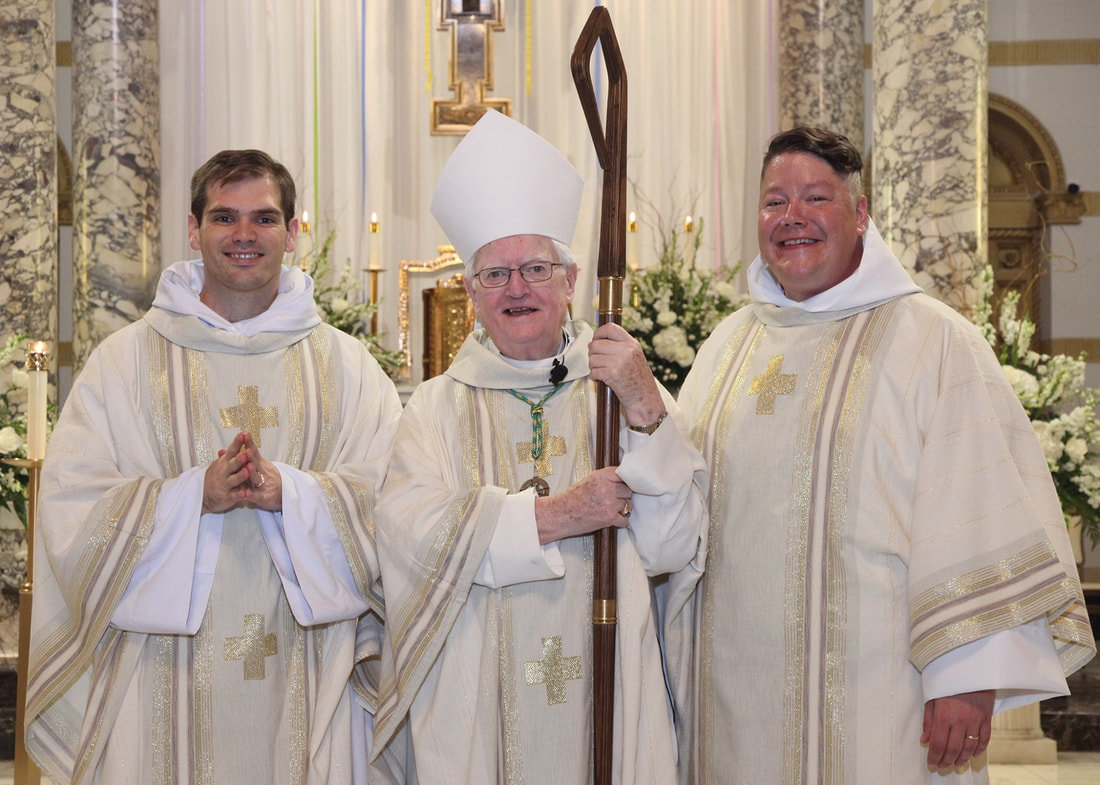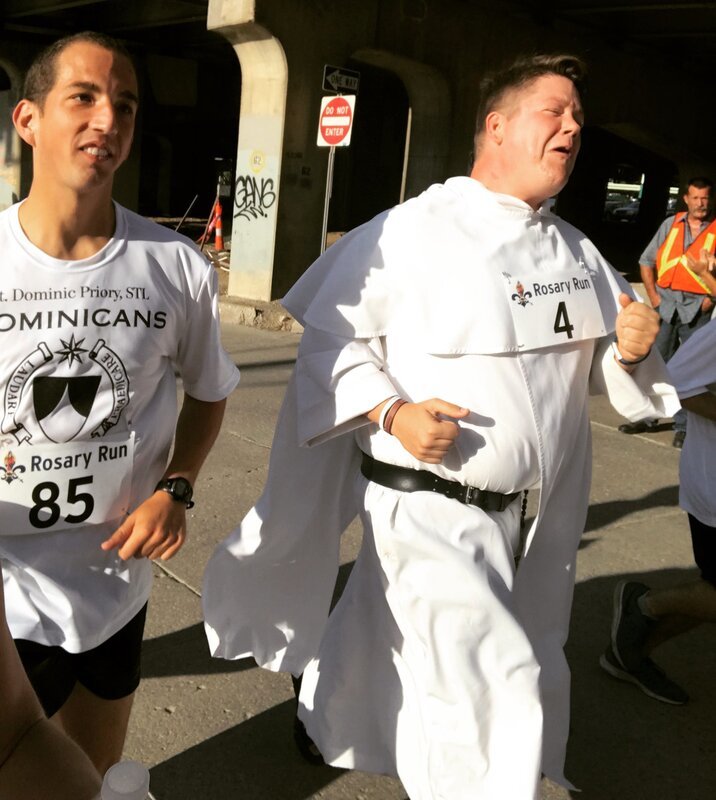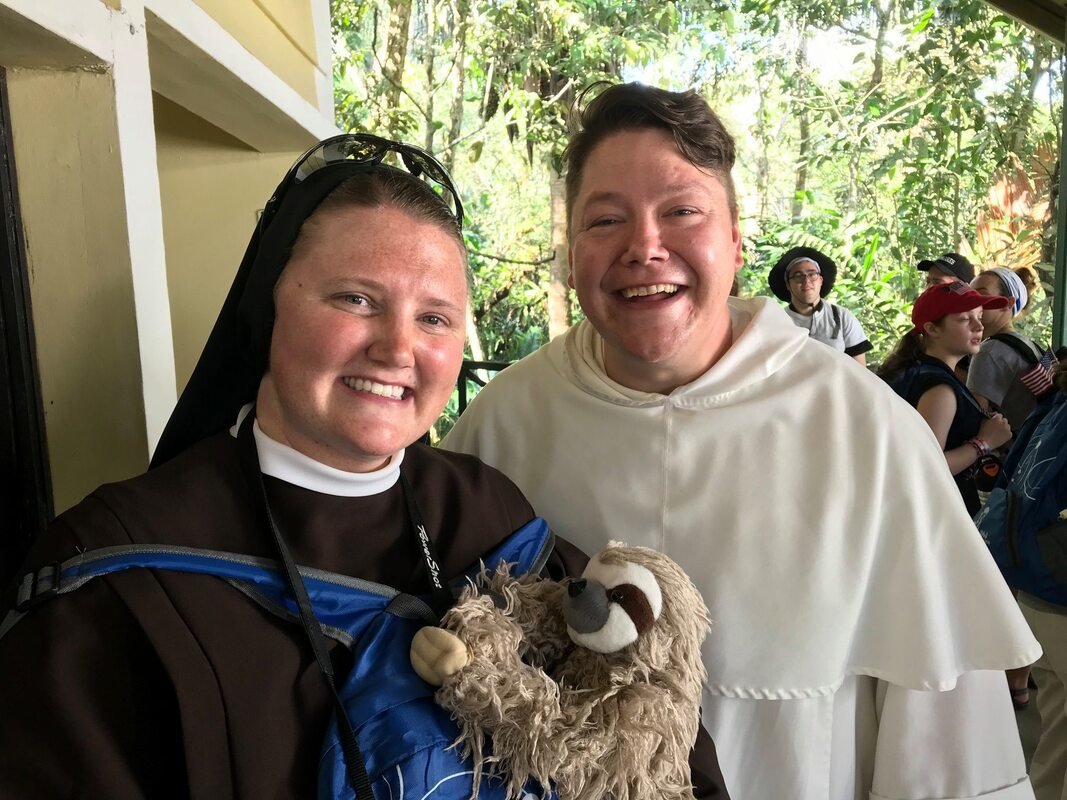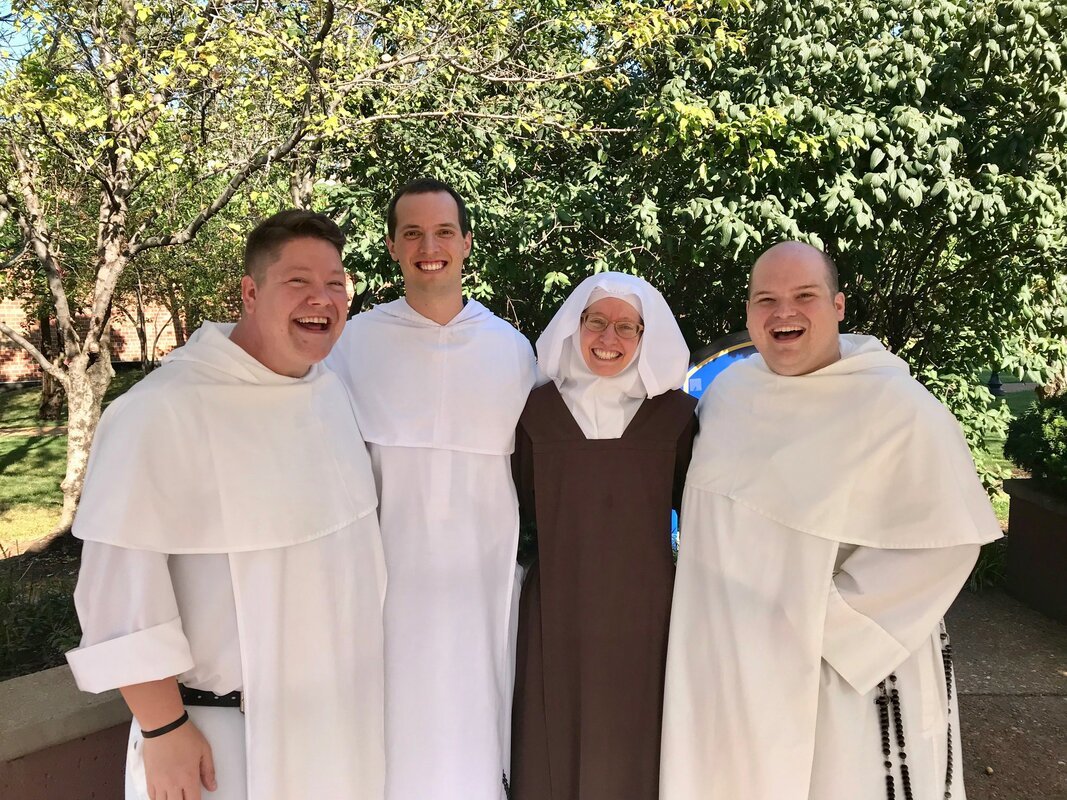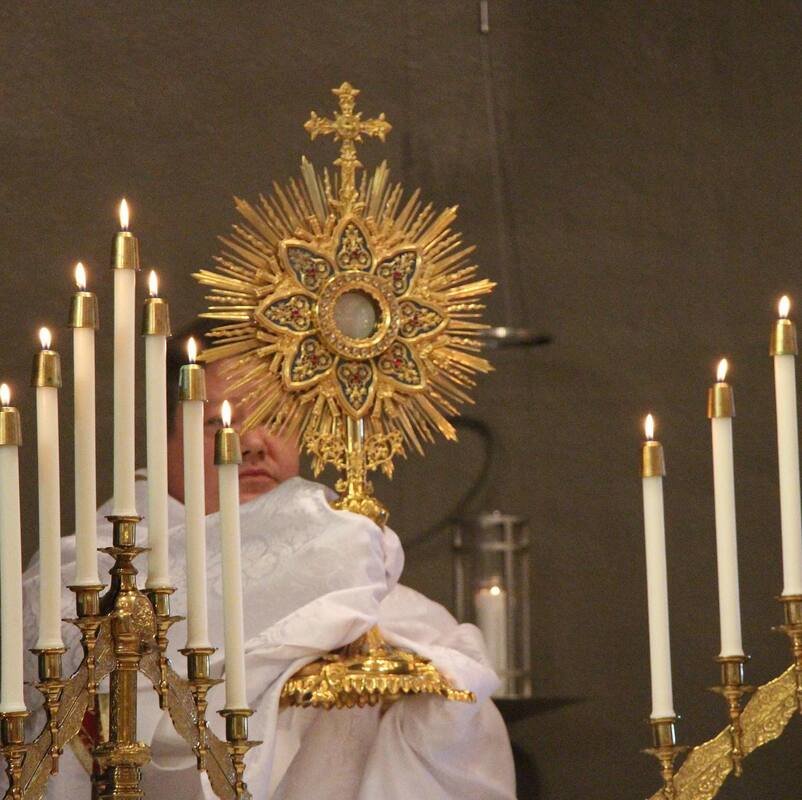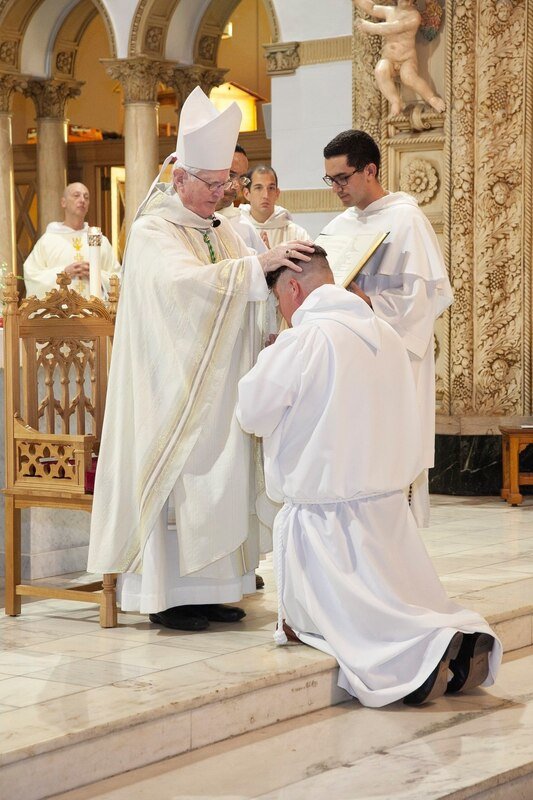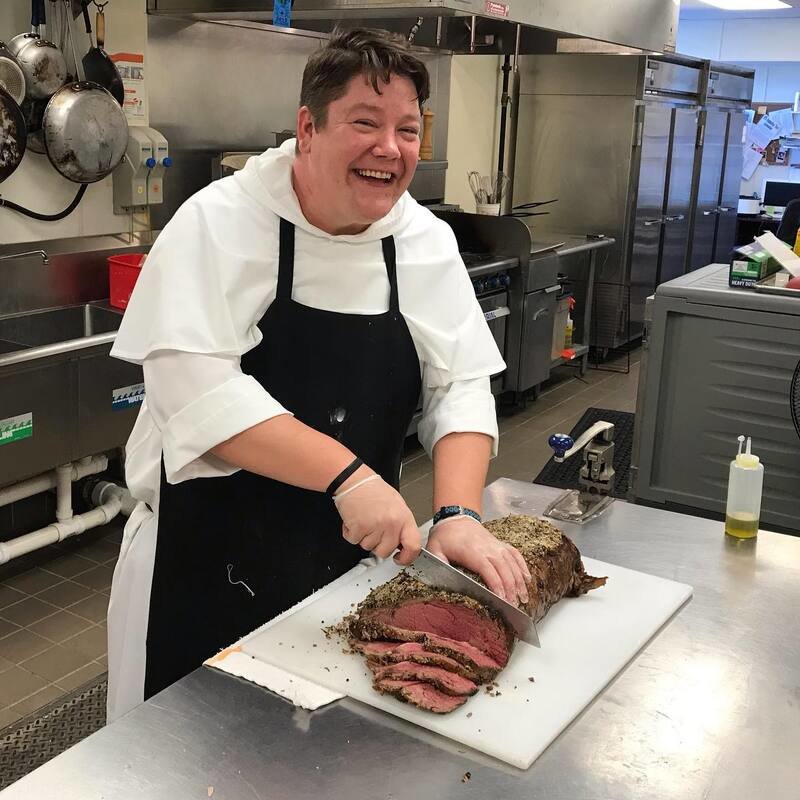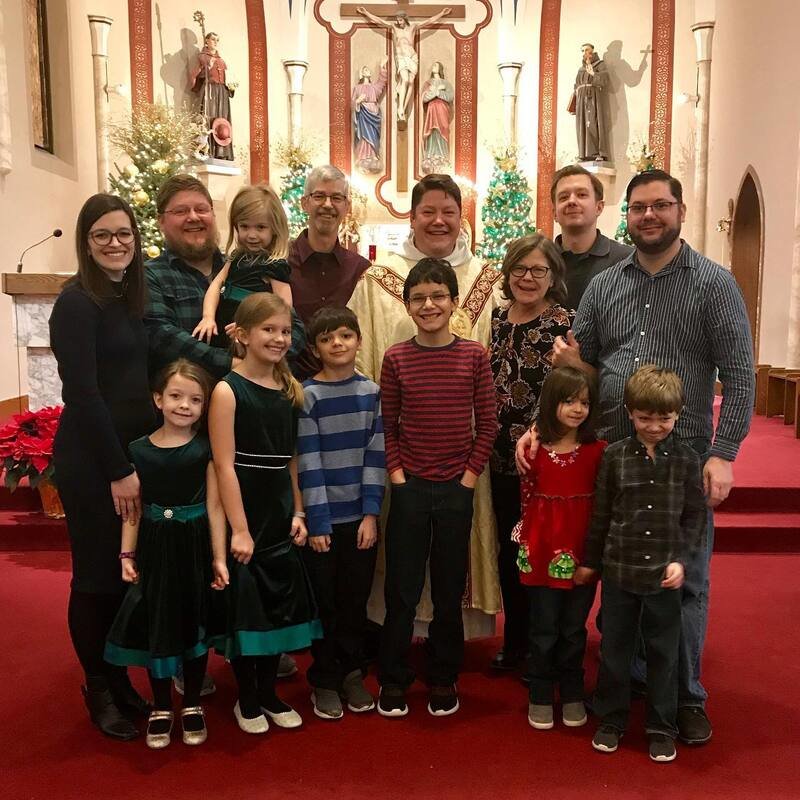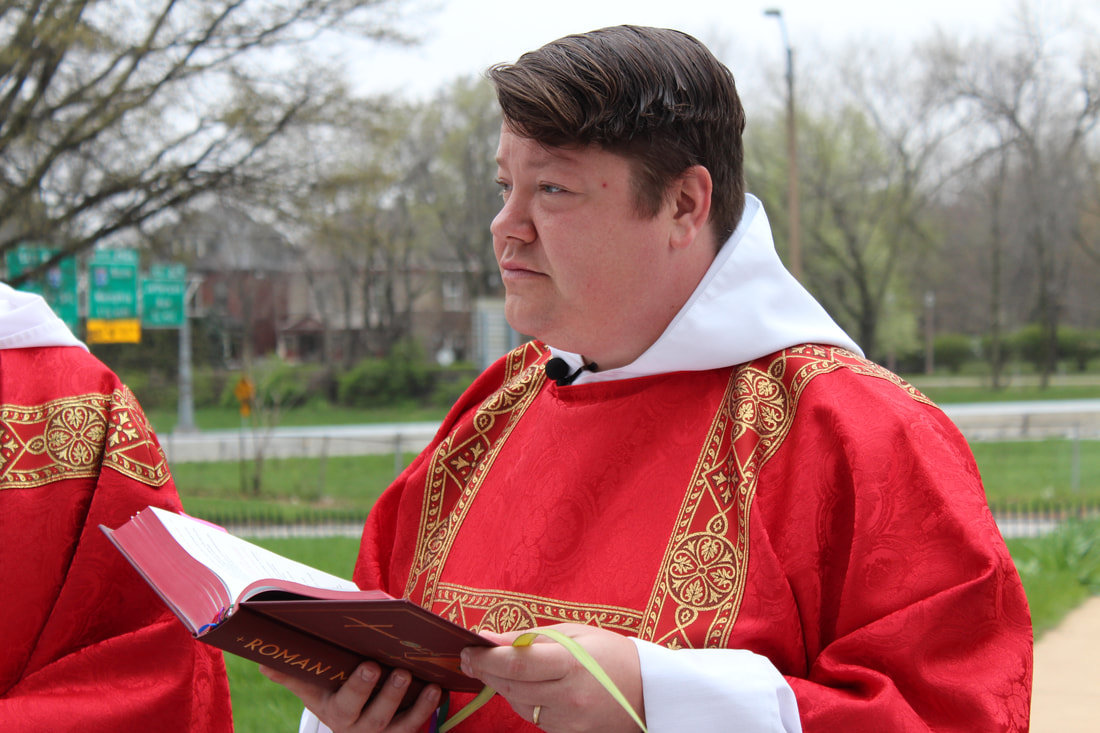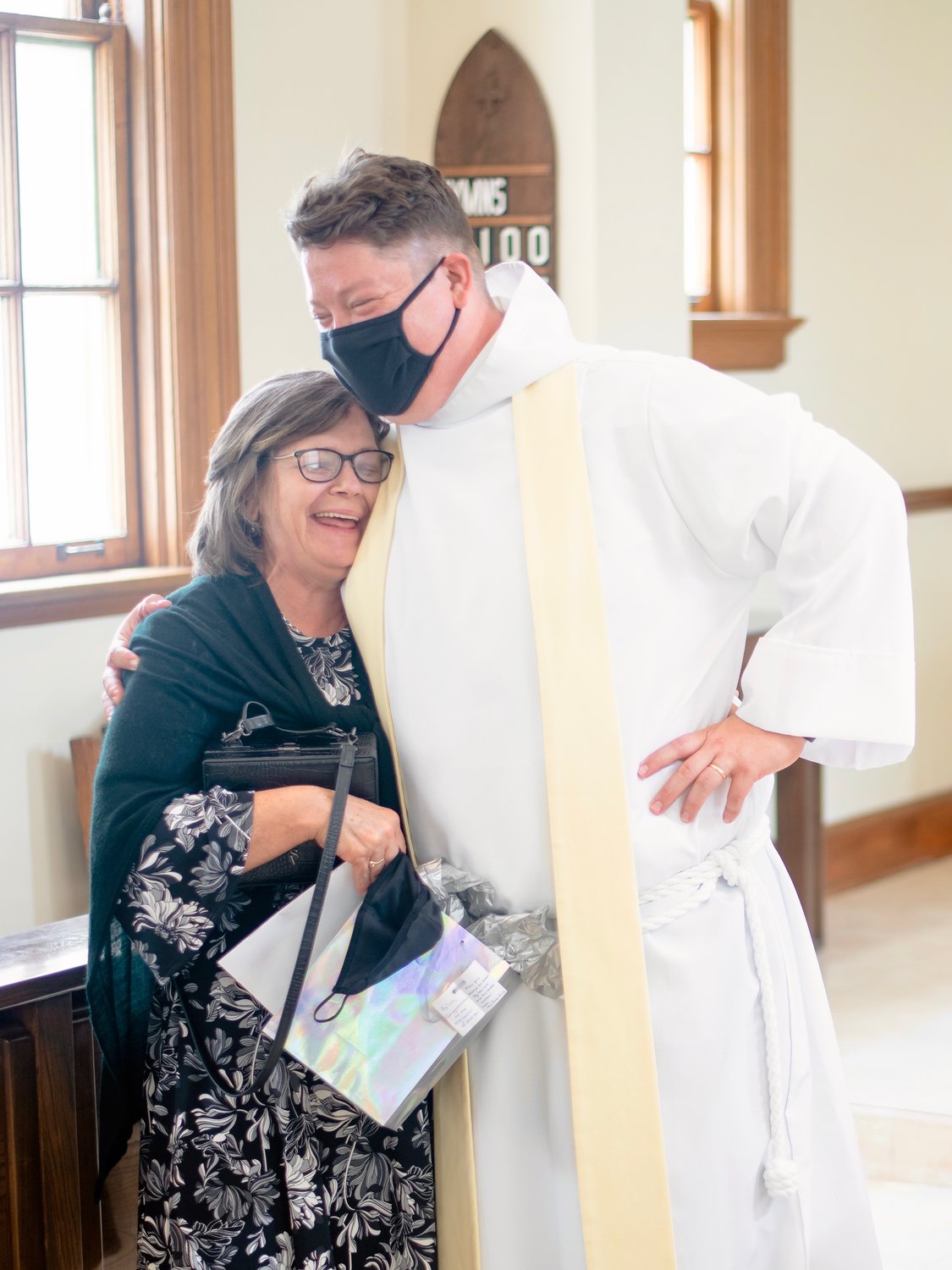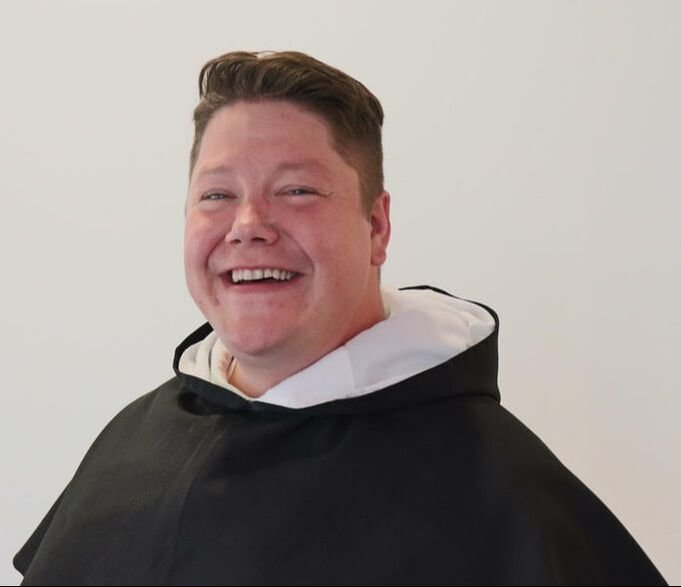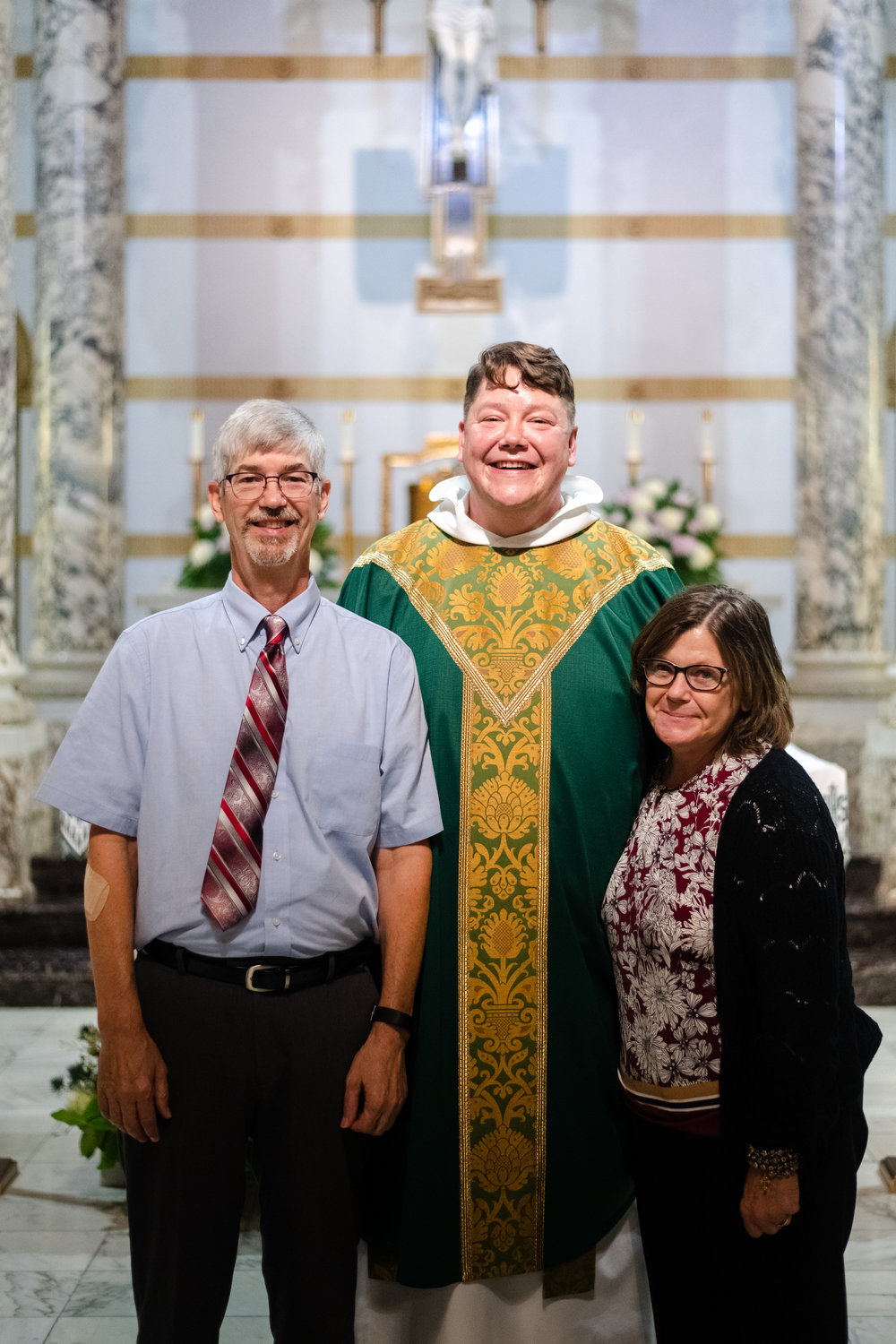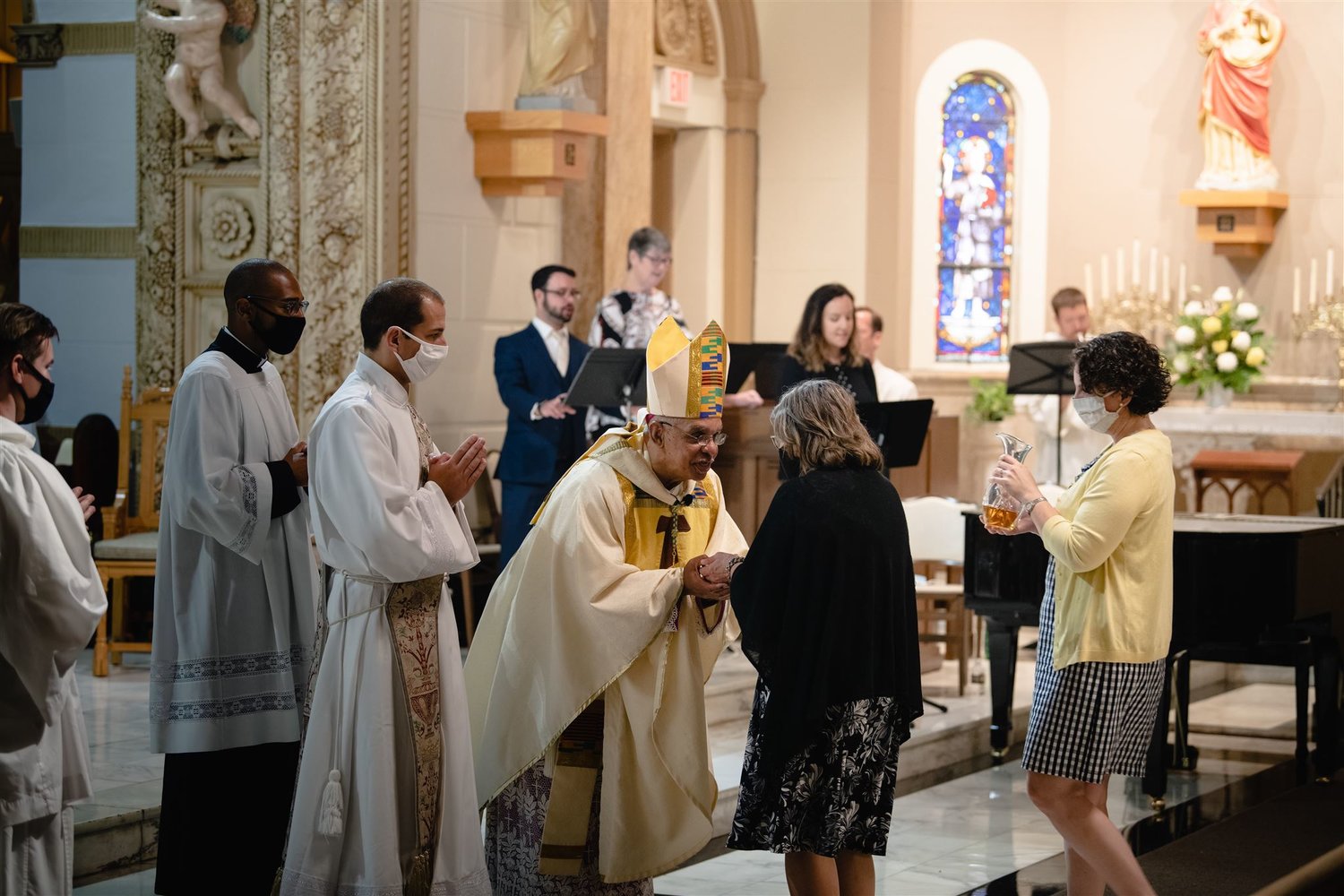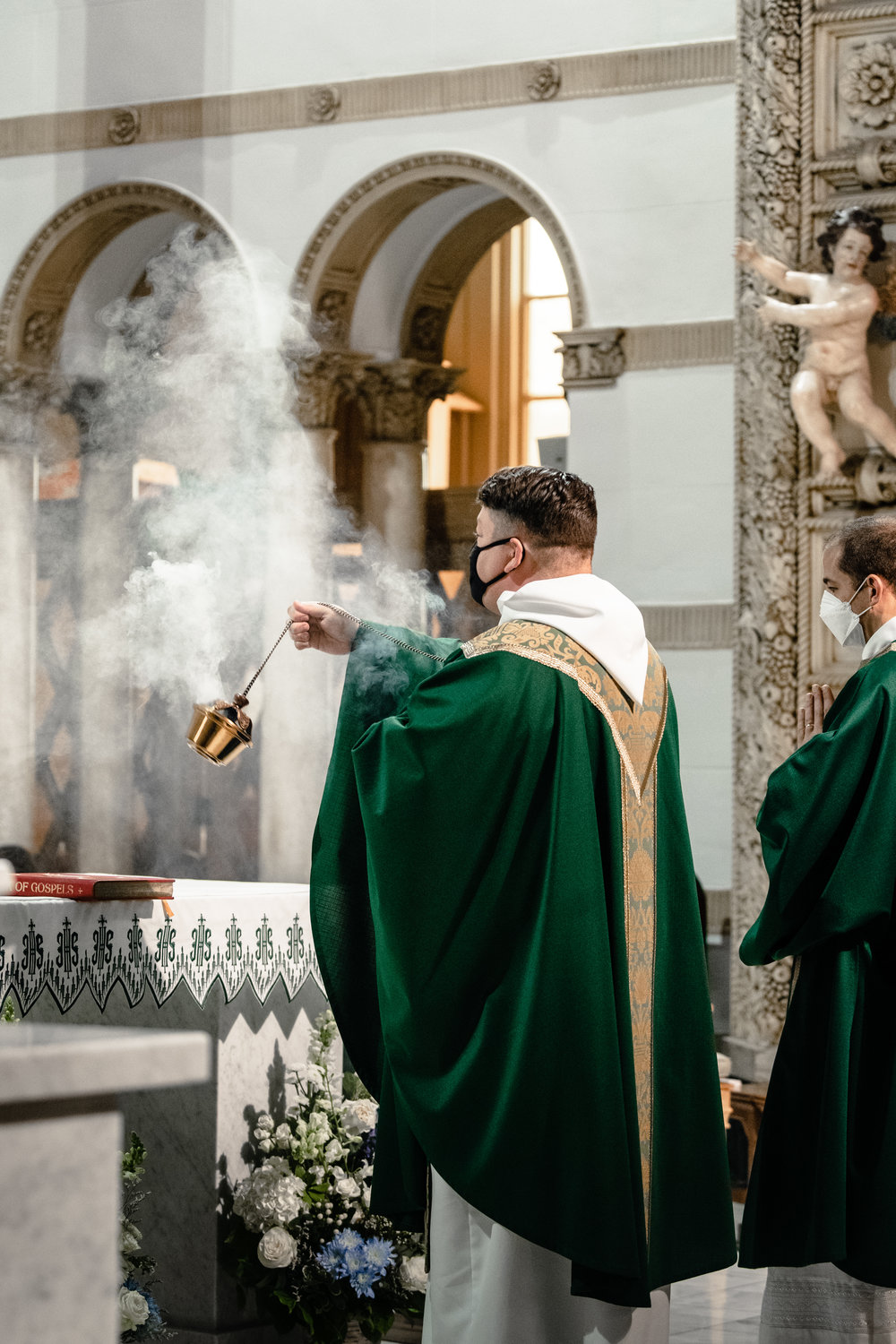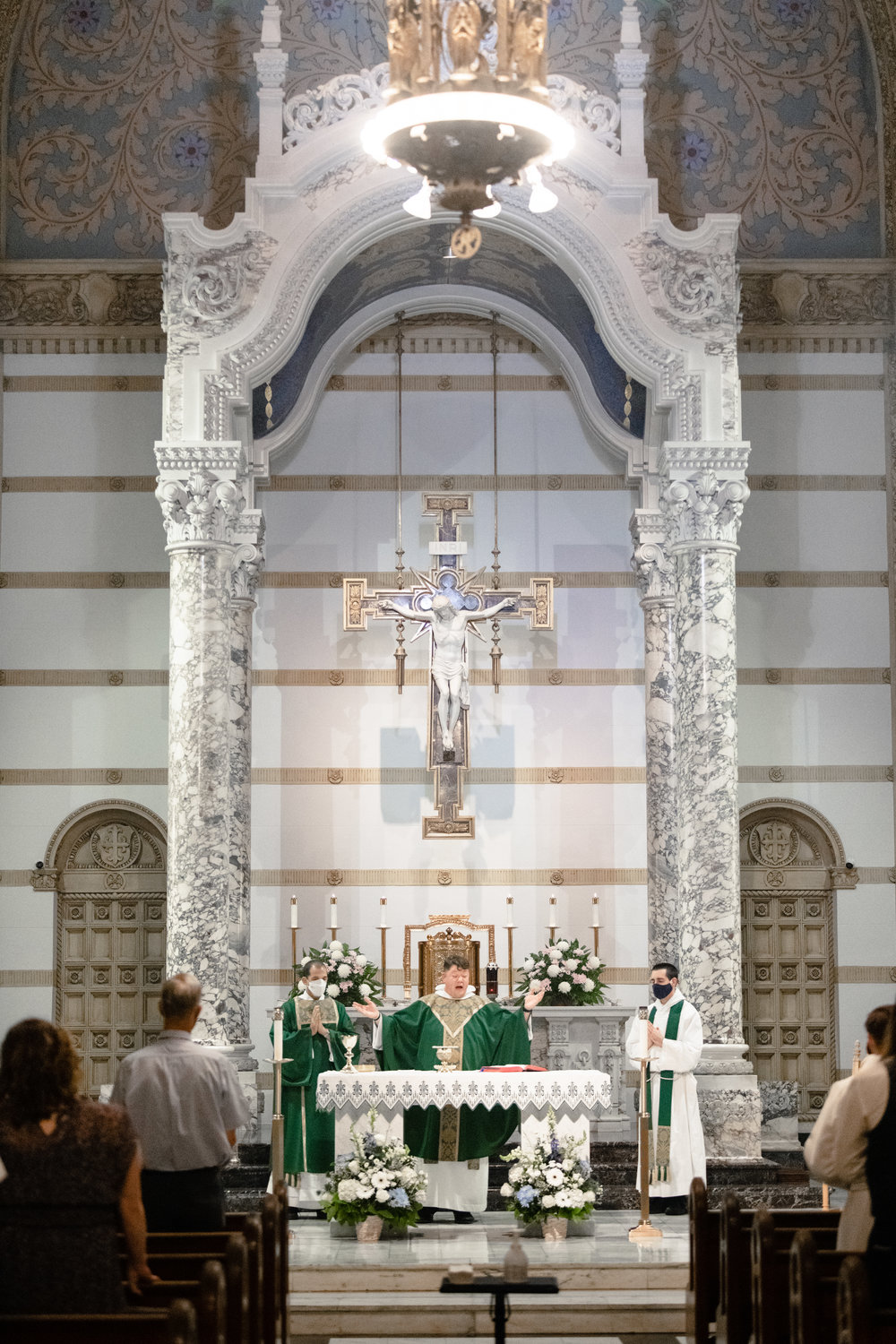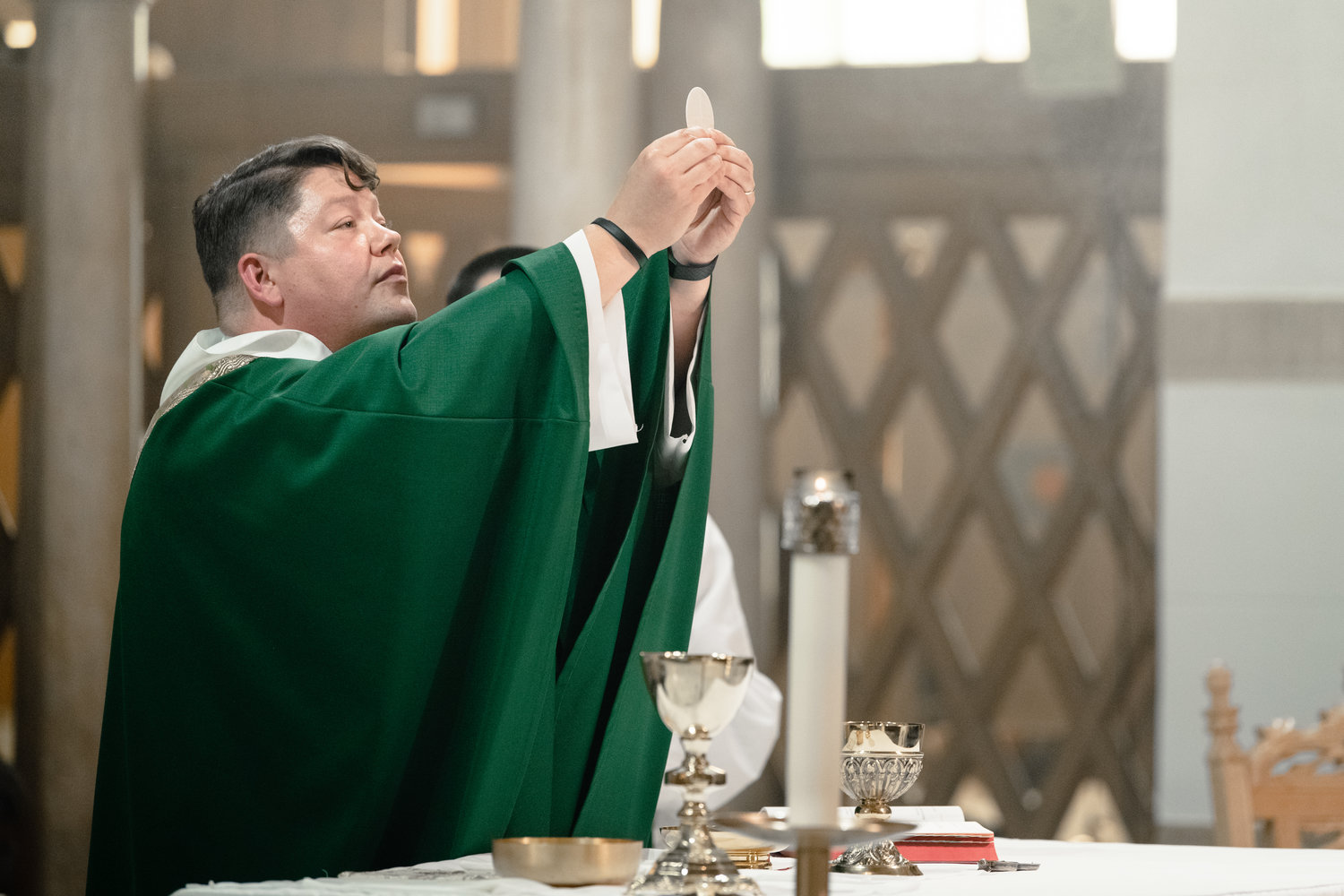Dominican Fr. Joseph Paul Albin has ties to Mexico, Columbia
Attended St. Brendan School and while in college was active at the St. Thomas More Newman Center

SCROLL THE ARROWS to see more photos of Fr. Albin, his ministry and his circle of friends.
Discerning a vocation is seldom straightforward and often begins long before the discerner is aware of it.
“There’s not some perfect magic plan God has laid out for us,” said Dominican Father Joseph Paul Albin, a campus minister at the University of Dallas in Irving, Texas. “He’s always revising the plan with each of our steps. So right now, you may be someplace where it isn’t God’s will for you to be, but you can still do God’s will while you’re there.”
Fr. Albin, ordained this past July, described his own path to the Priesthood and the Order of Preachers as “circuitous.”
He grew up in Mexico, Missouri, and attended St. Brendan School. He later became active in campus ministry at the St. Thomas More Newman Center in Columbia while studying at the University of Missouri.
“I have very faithful Catholic parents,” he said. “They did a really good job of showing my brothers and me not just proper religious practice but how the faith is lived.”
A big part of that was the sacrificial love they showed to each other, he said.
He remembers his family going to Mass on Christmas Eve each year, then returning early the next morning to help cook meals for the homebound.
“My parents wanted us to see Christmas as a day of service,” he recalled. “While the Incarnation was a great cause for celebration, they believed that celebration should immediately lead to service to others.”
“Do something!”
When Fr. Albin recently contacted his grade school principal, Sister Ruth Ann Klauser of the School Sisters of Notre Dame, he didn’t know if she’d remember him.
She said, “Oh, I certainly remember you!”
“Very truthfully, I was a troublemaker,” he recalled.
He found greater focus in high school, singing in the honors choir and performing in a couple of school productions.
“I think I saw those as talents that I could use for good,” he said.
Once while on a high-school retreat, he opened himself just a bit to the possibility that Jesus loves him enough to have died just for Him.
“I don’t know if I believed it fully at that movement,” he said. “But that’s the first time I can remember having an inkling that Jesus would love just me if I were the only one.”
Lingering doubts and feelings of unworthiness followed him to the University of Missouri, where he majored in religious studies.
Angelle Hall, the campus minister at the Newman Center, recognized great potential in him.
“She called a lot of gifts out of me that I didn’t know were there,” he recalled. “She helped me see that there were ways that I could lead in the community.
“But I just couldn’t believe that I could be called to the Priesthood,” he said.
After graduating, he moved to New Orleans to pursue a master’s degree in pastoral studies with emphasis on pastoral counseling at Loyola University.
He also served as a campus minister there, primarily working with retreats and small faith-sharing groups.
“I absolutely loved it,” he said.
He routinely rhapsodized about the beauty of religious life until one of his friends called his bluff.
“It was one of those kick-in-the-pants moments,” he recalled. “He basically said, ‘I’m tired of hearing about it. If you love it so much, are you gonna’ do something about it, or are you gonna’ just wait around forever?’”
That’s when Fr. Albin realized that he “wasn’t fully convinced that it’s not for me.”
Namely, “I didn’t want to get to 50 or 60 and say, ‘Man, I wish I had tried that,’” he said.
He knew and admired several Dominican priests from his time in Columbia.
The thought of living in a community that gathered several times a day for prayer appealed to him.
He also liked the idea of ministering among the people and helping bring the Good News to life for them through preaching and teaching.
“It seemed like a perfect fit,” he said.
Through the centuries
St. Dominic founded the Order of Preachers, known as the Dominicans, 800 years ago in France.
While traveling with his bishop, Dominic encountered numerous people who held heretical beliefs about Jesus and the Church.
“He was so moved by them, one in particular at an inn, that he stayed up all night to preach the Gospel of Jesus Christ and how it is revealed in the Catholic Church,” said Fr. Albin.
The experience convinced Dominic and his bishop of the need for some priests to live in community but go out into the world and confidently preach the Gospel.
That led him to establish a new kind of religious order. Members would be “friars” — brothers — to one another.
They would forsake marriage and individual ownership of property and pledge holy obedience to their superiors in the order.
Most but not all would eventually become priests.
A different life
Fr. Albin went into formal discernment with the Dominicans with his eyes and mind wide-open.
“You don’t have to be 100 percent sure in the beginning,” he noted.
He said the great challenge of entering religious life at age 29 was not poverty or celibacy but letting go of his autonomy.
“Intentionally moving into a life of obedience is unique and in many ways daunting when you come from a culture that’s always telling you to be self-reliant and not to ask for permission,” he said.
It starts with seeing his religious superiors as icons of Christ.
“You do it because you believe you’re doing what Jesus asks of you,” said Fr. Albin. “Everything we do is to be in conformity with Christ. The reason we’re poor and chaste and obedient is to be like Him. His whole life on earth was an act of humility.”
Fr. Albin believes one of the most powerful ways people in religious life give witness to the world is to form community in spite of differences.
“We can, in fact, live with people with whom we disagree, sometimes passionately, on matters that we all think are important, but still come together five times a day to pray the Psalms,” he said. “I think that’s an example our culture deeply needs today.”
Being formed
Fr. Albin underwent intense personal and communal discernment before the Dominican provincial in New Orleans invited him to enter the novitiate.
He then received his Dominican habit and began living as if he had taken vows.
“You have to spend time living it in order to see if it fits,” he said.
A year later, he accepted the invitation to profess temporary vows in the order, followed by permanent vows four years later.
Only in his second year did he become confident that this was what God wanted for him.
“I never really had that ‘aha’ moment,” he said. “But I began to realize that living in a religious community, I was growing to love God more and I was growing to love my neighbor more and was healthier than I had been before.”
He was being conformed into the image of Christ.
“I didn’t think God would be giving me those graces if I weren’t where I was supposed to be,” he said.
All the while, he continued emptying himself out in order for Christ to take his place.
“The more I put others first, the greater joy He gives me in my life,” said Fr. Albin
“Ridiculously blessed”
Fr. Albin professed solemn vows in June 2018, in St. Anthony of Padua Church in New Orleans.
“I was so overjoyed, it was ridiculous,” he said.
Friends from every phase and aspect of his life joined him in giving thanks to God.
“I felt the overwhelming support of so many people who had loved me into this vocation,” he said. “My family was there. My old campus ministers were there. Even some of my friends from college who aren’t Catholic.
“Seeing that vast system of loving support confirmed for me that the joy I was feeling was real, and that many people were also full of joy for me,” he said.
After final vows, he entered the studium, which is what Dominicans call their seminary studies, at the Aquinas Institute in St. Louis.
There, he completed master’s degrees in theology and divinity.
On July 25, 2020, in the middle of a global pandemic, Bishop Fernand Cheri OFM of New Orleans ordained him to the Holy Priesthood.
“What I mostly remember now is relief,” said Fr. Albin. “My first ordination date was postponed. We changed venues. There was a lot going on.”
Fewer than 100 people — including his parents and his three brothers — could attend. All wore masks and practiced safe distancing.
His mother and Mrs. Hall from the Newman Center in Columbia presented the bread and wine at the offertory.
“It was just beautiful to have two of the women who helped love me into the Priesthood and showed me what service to the people of God looked like, carry the instruments of salvation up to the bishop,” he said.
The grace of Holy Orders nearly overpowered him during his Mass of Thanksgiving the following day.
“What a wild and feckless move by God — having me act in persona Christi!” he said.
“He’s like, ‘I’m going to show My abundant love to My people through this action, through these broken men, so they may be part of My Body.’ It’s just wild!” the priest stated.
He thought his heart would explode with joy as he elevated the Most Blessed Sacrament during the consecration.
“It was a mixture of ‘I can’t believe that I get to do this’ and ‘I am so ridiculously blessed that I get to do this!’” he said.
“Being set free”
Fr. Albin pointed out that he can only be a priest because of the Priesthood of Jesus Christ.
“God, Who loves to call ordinary and often ridiculous folks to do His work, has called me into that work in a unique way, sacramentally, to serve His people,” he said.
Fr. Albin has discovered in religious life and Priesthood the difference between the pursuit of happiness and the pursuit of joy.
“Happiness is a fleeting feeling,” he said. “Joy is the virtue of knowing and being loved by an intimate and wonderful Lord.”
He believes preaching God’s Word prophetically is as important today as ever.
“All of the teachings of the Church come from a merciful and loving God,” he said. “You are never restricted by God. You’re always being set free.”
“Take the risk”
Fr. Albin is now assigned to full-time campus ministry at the University of Dallas — something he relishes and believes is essential.
“People in college are often testing their freedoms and their limits for the first time,” he noted. “They tend to be uniquely compassionate and loving and open to new things. That makes this a prime time in life to form an understanding of Who and what God is.”
In a world filled with possibilities, Fr. Albin cautions against becoming a “permanent discerner.”
“There’s only so much reflection you can do from the outside,” he said. “Eventually, you have to take the risk.
“If you’re discerning religious life, go and spend time with a religious community,” he said. “If you’re discerning married life, start having those deep and very real conversations with your partner about what the future might look like.”
He recommends a daily examination: “How am I living God’s will today? In what way am I drawing closer to God today?”
“That daily prayer will open up the rest,” he stated.
Comments
Other items that may interest you
Services
The Catholic
Missourian
2207 W. Main St.
Jefferson City MO 65109-0914
(573) 635-9127
editor@diojeffcity.org

